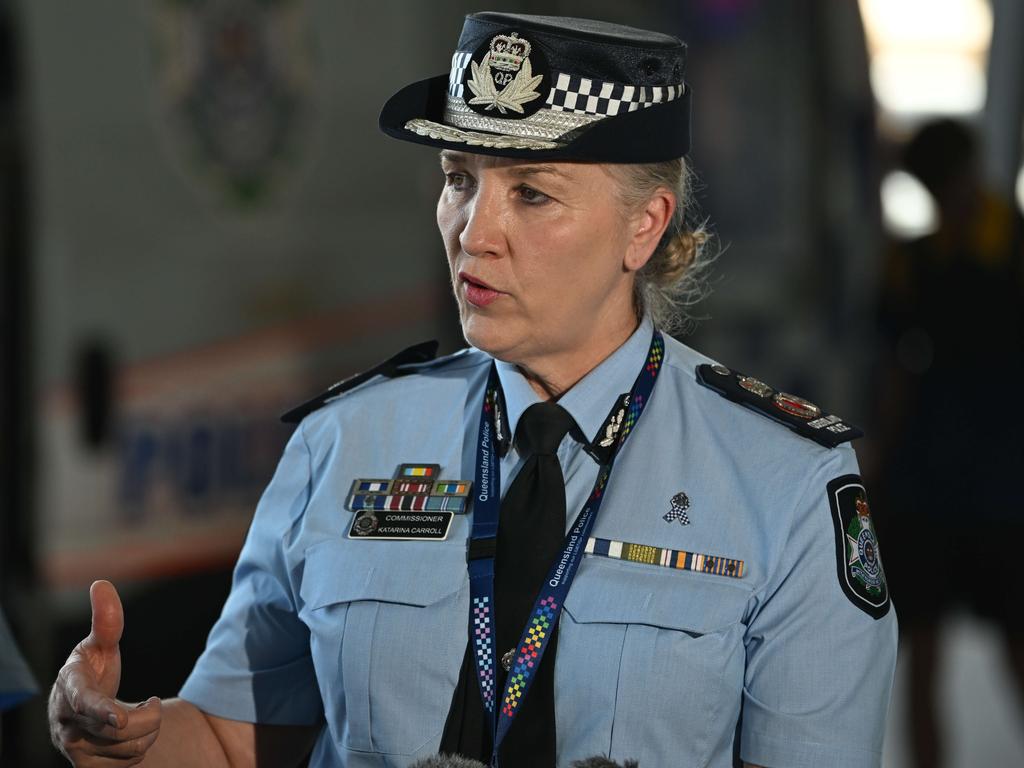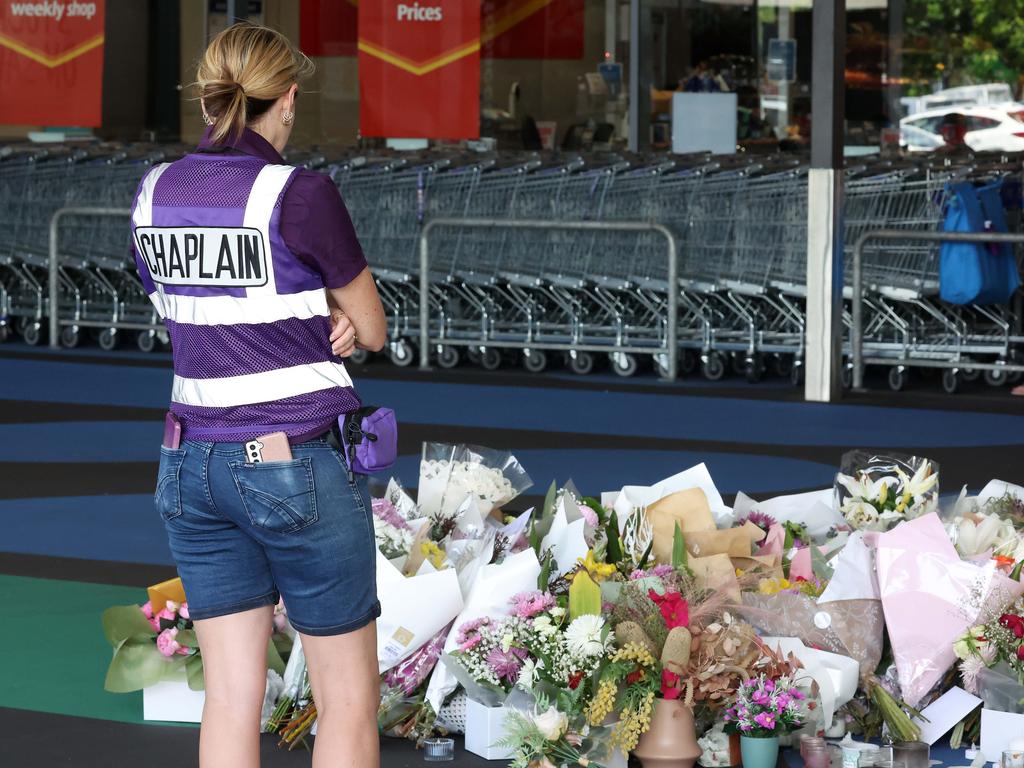Qld youth crime: Police Commissioner calls for GPS trackers
Police Commissioner Katarina Carroll has asked the government to revisit the use of a “very, very powerful tool” that would help fix Qld’s youth crime crisis.
QLD News
Don't miss out on the headlines from QLD News. Followed categories will be added to My News.
Police Commissioner Katarina Carroll has told staff she will “always provide frank and fearless advice to government” to ask for resources and law changes amid mounting pressure over how Queensland is dealing with the state’s youth crime crisis.
But in her note Ms Carroll said arrests by police were only “one part” of dealing with the issue, mentioning the role of other government agencies.
In a memo to officers on Friday, Ms Carroll said the service had experienced a large growth in demand for policing with an unprecedented rise in mental health matters, serious youth crime, domestic and family violence incidents and cost of living pressures.
“I have been very open and upfront about the challenges and pressures being placed on our frontline and I know that the community sees the good work that Queensland Police do every day to tackle these challenges,” Ms Carroll wrote.
“In 2023, an additional 10,000 people were processed through our Queensland watchhouses compared to 2022, this is due to the dedication and hard work of our officers.

“We are leading the nation in implementing innovative strategies to reduce youth offending including conducting high-visibility policing operations like Whiskey Unison, saturating hot spot areas with Taskforce Guardian, conducting wanding operations to reduce knife crime and introducing the first ever digital intelligence team.”
Ms Carroll said there was number of intervention and prevention strategies like the co-responder model with police, Project Booyah and PCYC programs.
“We know that QPS is at the forefront of reducing youth offending, but we also know that arrests are only one part of the dealing with the issue,” she wrote.
“It requires a significant holistic systems approach in partnership with all government agencies, so that the underlying social and health issues associated with youth offending can be addressed.
“I want to reassure you all, that as your Commissioner, I will always provide frank and fearless advice to government and will continue to advocate for the resources, legislation changes and support.
“Like you, I’m passionate about keeping Queenslanders safe. I am incredibly proud of what the QPS continues to achieve, and I sincerely thank you for your ongoing hard work and commitment to community, whether that be on the frontline or in a supporting role. I couldn’t be prouder of each and everyone of you.”
Ms Carroll has also asked the government to revisit the trial of GPS trackers for teen criminals on bail, saying only 33 devices had been issued, with five now in use.
Ms Carroll described the electronic monitoring devices as a “very, very powerful tool”.
Her comments come after the stabbing death of Ipswich grandmother Vyleen White on Saturday night.

Ms White, 70, was allegedly murdered by a 16-year-old Bellbird Park boy in the car park of her local shopping centre at Redbank Plains as her six-year-old granddaughter stood nearby. The youth allegedly fled in her car. Five others – aged 15 and 16 – have been charged with other offences relating to the crime.
“I do think electronic monitoring devices do need to be re-looked at,” Ms Carroll said.
“We spend an extraordinary amount of time checking on youth offenders that are on bail.
“And that is only a point in time – whereas electronic monitoring devices are constant.
“We’re not of the view that every child should have an electronic monitoring device – we’re talking about … serious offending.”
A trial of electronic monitoring for juvenile offenders began in 2021 and was recently extended to April 30, 2025.
The devices are fitted to the ankle as part of bail conditions and provide real-time alerts of any unauthorised movements.
There are strict conditions on who is eligible, including that the young person must be at least 15, live in specific geographical areas and undergo a suitability assessment.
“We look at all the tools that we can have to make the community safer to make sure that we stop reoffending,” Ms Carroll said.
“These are one of the preventive measures. I’ve already spoken to the minister so that we revisit what is happening in this space.”
Ms Carroll said it was “incredibly important” to see what other jurisdictions did to tackle youth crime, with both South Australia and New Zealand widely using electronic monitoring devices.
She said police were using a number of strategies to target young offenders, including more officers patrolling the streets, particularly hot spots.
She said Operation Whiskey Unison had seen more than 122,000 hours of proactive police patrols, resulting in the arrests of more than 10,000 people in 12 months, including 3800 juveniles.
“Most kids that come before us are genuinely good kids, and they get a caution … and then we never see them again,” Ms Carroll said.
“However the cohort that is extraordinarily difficult to deal with, the repeat offenders, serious repeat offenders, in some instances, the only option is to detain them to stop the offending in the community.”
She said she would also like to see an expansion of wanding powers, which currently allow police to use metal detectors on people in transport hubs and Safe Night precincts.
“We’re very supportive of expanding wanding powers because we know already from the short amount of time that we’ve had them across the state, 400 knives, axes, you name it, have been picked up (by police) – and even 40 in the Ipswich area,” she said.
“So an extension of that would definitely make our shopping centres and other areas even more secure.”
Originally published as Qld youth crime: Police Commissioner calls for GPS trackers








